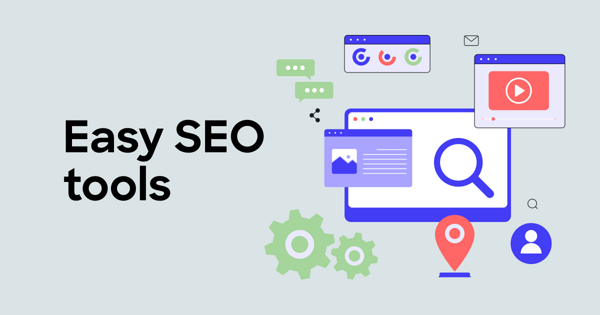A content management system (CMS) is one of the most vital tools used in digital marketing. It enables easy content creation and management, helping businesses maintain a strong online presence and stay competitive in the digital age.
Recent studies reveal that 47% of companies use between two and three CMSs, driven by the need to achieve omnichannel capabilities. These numbers highlight the importance of choosing the right CMS to manage content effectively and reach your audience across multiple channels.
But let's face it, managing multiple platforms is a recipe for headaches and wasted resources. As your business grows, you need a CMS that can handle all your content needs in one central hub, from your website to your blog, landing pages, and beyond.
Here's what we'll explore in this blog post:
-
An overview of the different types of CMSs and their key features
Actionable tips on how to choose a CMS
-
A detailed comparison of the best CMS platforms, with their pros and cons
Let’s get started with the fundamental question.
What is a CMS?
A CMS allows website admins to add or change a website's content without requiring in-depth technical know-how. It simplifies the process of building and maintaining websites by integrating a user-friendly interface and various tools.
Here are the key features and functionalities of a CMS.
Content creation tools: These enable users to create and edit content like text, images, videos, and more directly within the CMS interface.
-
Content storage: This allows for a centralized repository where all digital content is efficiently organized for easy access and management.
-
Content publishing capabilities: They allow users to schedule content publication, control access permissions, and maintain version control to ensure that content goes live.
Types of content management systems
These are the most common types of CMSs:
Traditional CMS
Also known as monolithic CMSs, traditional CMSs follow a conventional approach where the content management backend and the frontend presentation layer are tightly coupled. In this architecture, content creation, storage, and delivery are all managed within a single system.
Headless CMS
Headless CMSs decouple the content management backend from the frontend presentation layer, offering greater flexibility. Content is stored and managed independently, allowing developers to use any frontend technology or framework to render content.
Decoupled CMS
Decoupled CMSs combine elements of both traditional and headless CMS architectures, offering a hybrid solution for content management. In a decoupled CMS setup, the backend content management system is separate from the frontend presentation layer, yet the two systems remain loosely coupled.
Criteria for choosing a content management system
Your CMS can make or break the success of your website. The content marketing manager at Textmagic elaborates:
Keep in mind these criteria when choosing the right CMS for your needs.
User-friendliness
Intuitive interface: Choose a CMS with a user-friendly interface that requires minimal training and is easy to navigate.
-
Ease of installation and setup: To minimize downtime, opt for a CMS that offers a straightforward installation process and quick setup.
Cost
Free vs. paid CMS options: Decide whether a free open-source CMS or a paid CMS better suits your budget and requirements.
-
Total cost of ownership: To understand the full financial impact, consider all associated costs — hosting, plugins, themes, and maintenance.
Customization options
Themes and plugins: Look for a CMS with diverse themes and plugins to customize your site's appearance and functionality.
-
Custom coding capabilities: Determine if you need a CMS that supports custom coding for unique features or design elements.
Scalability
Handling growing traffic: Ensure that the CMS of your choice can handle increased traffic as your website grows in popularity.
-
Support for expanding content: Confirm that the CMS can accommodate larger volumes of content without compromising performance.
SEO capabilities
Built-in SEO tools: Select a CMS that offers integrated SEO tools to optimize your site for search engines.
-
Customizable URLs, meta tags, and headers: Check if the CMS allows you to customize URLs, meta tags, and headers to rank higher.
Security features
Regular updates: Choose a CMS that receives regular security updates to protect the platform against vulnerabilities.
-
Data protection measures: Ensure that the CMS has robust data protection measures to safeguard your content and user information.
Support and community
Availability of customer support: Verify that the CMS provider offers reliable user support when you need assistance.
-
Active user community and forums: Look for a CMS with an active user community and forums where you can find help, tips, and resources.
Best content management systems to choose from
With so many CMS options out there, it can be overwhelming to choose the right one.
We've created a list of the top 10 content management systems to help
you choose the best one. Whether you're a marketer, developer, or
business owner, we'll provide the insights you need to choose a CMS that
drives results.
1. Voog
Overview and key features
With its focus on user experience (UX) and all-in-one service, Voog is a great CMS option for businesses and individuals looking to establish a strong online presence. Its various customizable templates allow you to design a website that fits your style. It also integrates seamlessly with various third-party tools and services, adding extra functionality.
Ideal use cases
Blogs
Small businesses
eCommerce websites
Why you should choose it
Its multilingual support suits global audiences and diverse needs
Choosing Voog ensures a seamless website management experience
Limitations
It may take some time to understand the full potential of the developer tools
Pricing
A free trial is available
Paid plans start from $11 per month
2. WordPress
Image source: savvy.co
Overview and key features
WordPress is the most commonly used CMS worldwide. Originally made for blogging, it has become the most popular CMS. It is open-sourced and has millions of third-party developers.
Ideal use cases
Blogs and personal websites
-
eCommerce sites using WooCommerce
Small to medium-sized business websites
Why you should choose it
Easy to use for beginners
Highly customizable with themes and plugins
Limitations
Users need to manage many updates
Performance can be slow with too many plugins
-
Can be vulnerable to security issues without proper maintenance
Pricing
A free plan is available
Paid plans start from $4 per month
3. Joomla
Image source: developer.com
Overview and key features
Joomla is a top CMS choice for creating dynamic websites that require a high degree of customization and control. It has become one of the most popular CMS platforms, with a large and active community of developers and users.
Ideal use cases
eCommerce sites
Corporate websites
Online magazines and newspapers
Why you should choose it
Multilingual support
A high degree of flexibility
Limitations
Fewer themes and plugins are available
It may require more technical knowledge
Pricing
A free plan is available
Paid plans start from $99 per year
4. Drupal
Image source: dxpr.com
Overview and key features
Drupal is one of the best CMS platforms available. With its extensive library of modules and themes, Drupal allows users to create highly customized websites. It excels in handling large-scale content management, making it a great choice for complex content needs.
Ideal use cases
Community platforms
Government websites
Large corporate websites
Why you should choose it
Strong security features
Highly customizable and scalable
Limitations
Steep learning curve
Requires more technical knowledge
Pricing
Free
-
Some third-party websites may charge fees for Drupal-compatible modules or themes
5. Magento
Image source: litextension.com
Overview and key features
Magento is a leading CMS for eCommerce website platforms. With its flexible architecture, it can help businesses create omnichannel shopping experiences across various touchpoints. Magento’s features include product management, SEO tools, and a large selection of customizable themes and extensions.
Ideal use cases
Medium to large eCommerce websites
Businesses with complex product catalogs
-
Online stores requiring advanced customizations and integrations
Why you should choose it
Strong security features
Highly customizable and scalable to fit business growth
Limitations
Can be resource-intensive, involving hosting solutions
It may require technical expertise to set up and manage
Pricing
The basic version — Magento Open Source — is free to use
-
The upgraded version — Magento Commerce — costs $1,988 per month
6. Shopify
Image source: performance.shopify.com
Overview and key features
Shopify's reputation as one of the best CMS software solutions is well-deserved. Its user-friendly interface and comprehensive toolset make it an excellent choice for businesses seeking a reliable and scalable platform to manage their online content and sales. It combines eCommerce functionality with marketing and SEO tools for an all-in-one solution.
Ideal use cases
Retailers
Startups and small businesses
Why you should choose it
It eliminates the need for multiple platforms
-
The intuitive interface requires minimal technical expertise
Limitations
Complex customizations might require coding knowledge
-
Shopify charges transaction fees on each sale (unless you use Shopify Payments as your payment gateway)
Pricing
A free trial is available
Paid plans start from $24 per month
7. Wix
Image source: support.wix.com
Overview and key features
Wix is a cloud-based website builder and CMS with various templates and an easy drag-and-drop interface. It provides tools for SEO, marketing, and eCommerce, making it a versatile choice for many websites.
Ideal use cases
Blogs
Small business websites
Why you should choose it
Extensive design flexibility
User-friendly, ideal for beginners
Limitations
Basic eCommerce capabilities
Not suitable for large-scale websites
-
Limited customization options compared to more advanced CMSs
Pricing
A free trial is available
Paid plans start from $17 per month
8. Squarespace
Image source: webmarketing.academy
Overview and key features
Squarespace is a user-friendly CMS known for its visually stunning design templates. The platform's intuitive interface makes it easy for beginners to build and customize their websites without any coding knowledge. It includes blogging features and tools for content creation and scheduling, as well as social media integration.
Ideal use cases
Blogs
Online stores
Small businesses
Why you should choose it
It provides reliable & secure web hosting services
-
It’s perfect for websites that require an enhanced visual appeal
Limitations
The flexibility is somewhat limited
Less customizable compared to some other CMSs
Pricing
A free trial is available
Paid plans start from €11 per month
9. Contentstack
Image source: contentstack.com
Overview and key features
Contentstack is a headless CMS that helps developers and content editors manage content across various platforms. It is designed to be flexible and easy to use, making it a popular choice for businesses and organizations that need to manage large amounts of content.
Ideal use cases
Large enterprises
Marketing agencies
eCommerce platforms
Why you should choose it
-
It connects with other systems and tools you’re already using
-
Its intuitive interface makes it easy for teams to manage content
Limitations
It can be more expensive than other CMSs
-
It has fewer ready-made templates compared to traditional CMS platforms
-
API (application programming interface) usage can be limited depending on the plan
Pricing
A free trial is available
-
Contentstack offers customized pricing based on your needs
10. Ghost
Image source: support.websoft9.com
Overview and key features
Ghost is a versatile CMS known for its simplicity and intuitive interface. With a strong focus on publishing, it's a great choice for users who prioritize content quality and site performance. It integrates membership and subscription features, allowing users to monetize their content through memberships, subscriptions, or donations.
Ideal use cases
Blogs
Digital publishers
Content marketers
Why you should choose it
It is known for its fast loading times
-
It can be customized to fit your needs, given its API-first approach
Limitations
It is not built for eCommerce
It may require some technical knowledge
Pricing
A free trial is available
Paid plans start from $9
How to use a CMS for maximum impact
Strategic practices need to be applied across all website aspects to unlock the full potential of your CMS. Here's how you can make the most of your CMS for various purposes.
Content strategy
📝 Define clear goals regarding your content, whether it’s increasing traffic, generating leads, or improving engagement.
📝 Create a detailed content calendar to schedule and organize your posts with consistent and timely updates.
📝 Use categories and tags to organize content effectively.
SEO
📈 Conduct thorough keyword research to identify terms your audience is searching for and integrate them naturally into your content.
📈 Optimize meta descriptions and titles to improve click-through rates and search engine rankings.
📈 Use internal links to connect related content. This will help search engines better understand your site's structure.
Design and UX
🎨 Choose a mobile-friendly theme to ensure a seamless experience across all devices. Over 60% of web traffic comes from mobile users as of 2024.
🎨 Customize the theme to align with your brand identity, ensuring consistency in colors, fonts, and design elements.
🎨 Design intuitive navigation menus to help users find information quickly and easily.
🎨 Use responsive images and media that adjust to screen sizes without compromising quality.
🎨 Regularly test your website on various devices and browsers to ensure a consistent UX.
Performance optimization
🎯 Compress and resize images to reduce load times without sacrificing quality.
🎯 Reduce the number of elements on your page that require HTTP requests, such as scripts, images, and stylesheets.
🎯 Configure your server to store certain site elements in users’ browsers for faster loading times upon subsequent visits.
🎯 Implement caching plugins to store static versions of your content, reducing server load.
🎯 Use a content delivery network (CDN) to distribute your content across multiple servers worldwide to improve load times.
🎯 Schedule regular cache clearing to ensure that users receive the most updated content.
Regular maintenance
🛠️ Update your CMS, themes, and plugins to benefit from the latest features and security patches.
🛠️ Test updates in a staging environment before applying them to your live site to ensure compatibility.
🛠️ Install security plugins to monitor and protect your site from potential threats.
🛠️ Deactivate and delete plugins that are no longer in use to reduce security vulnerabilities.
🛠️ Set up automated backups to ensure that your data is regularly saved and can be restored in case of an emergency.
🛠️ Conduct regular security audits to identify and address potential risks.
Analytics and improvement
📊 Integrate Google Analytics to track visitor behavior, traffic sources, and other key metrics.
📊 Use heatmap tools to visualize how users interact with your site and identify areas for improvement.
📊 Create custom reports to focus on specific key performance indicators that align with your business goals.
📊 Test different versions of your web pages to determine which elements perform best and optimize accordingly.
📊 Collect and analyze user feedback to identify pain points and areas for enhancement.
📊 Continuously make small, data-driven changes to your site to improve UX and performance over time.
Future trends in CMS development
As we look ahead, the future of CMS development is shaped by several trends.
Artificial intelligence and machine learning integrations: These technologies can help automate routine tasks, such as content editing and optimization, allowing web developers time to focus on more complex tasks.
Enhanced personalization features: Personalization is also stepping up its game, as CMS developers focus on delivering tailored content experiences to each user. These platforms will deliver tailored content recommendations and dynamic experiences to build stronger connections between businesses and users.
Increased focus on mobile optimization: As mobile devices continue to rule our daily lives, CMSs are shifting their focus to mobile optimization. This means enjoying seamless website experiences regardless of your screen size or device.
The growing importance of UX: UX has become a critical factor in determining a website's success. With so many options available, users have come to expect intuitive experiences across all devices and platforms. By focusing on UX, CMSs can help website owners create and maintain sites that look great and provide value.
Explore Voog for a user-friendly CMS solution
Choosing a CMS is a critical decision that can impact the success of your online presence. With so many options available, it's essential to evaluate your needs and select a CMS that aligns with your goals and objectives. Whether you're looking for ease of use, scalability, or advanced features, there's a CMS out there that's right for you.
Consider your budget and your technical expertise. Before deciding, don't be afraid to ask questions, read reviews, and try out different options.
Try out Voog for a powerful CMS solution and take the first step towards creating a website that truly represents you.




















